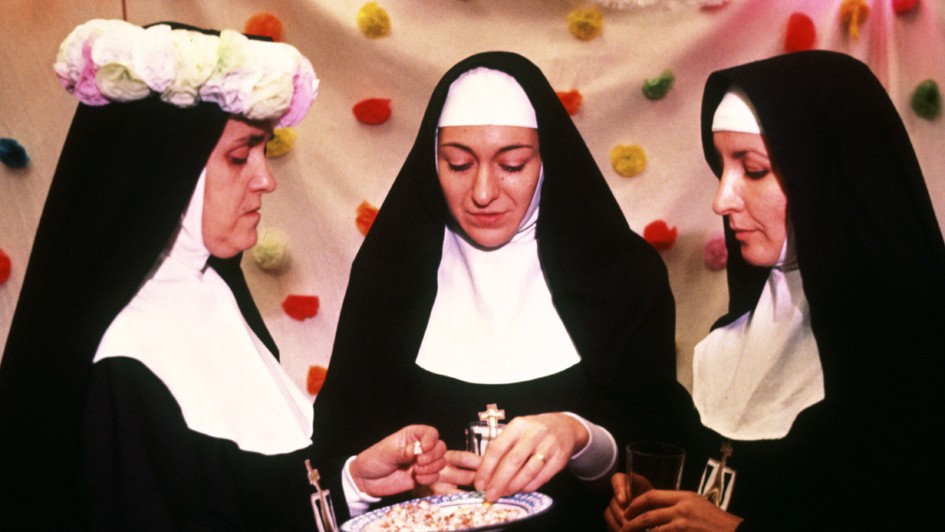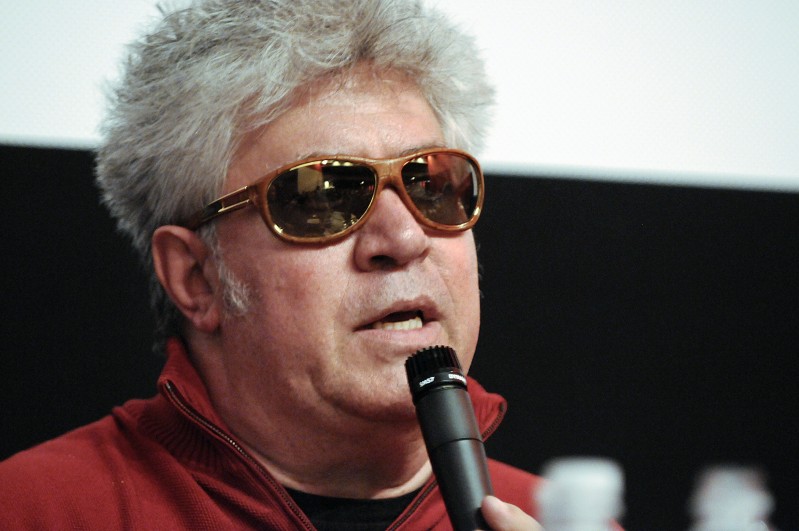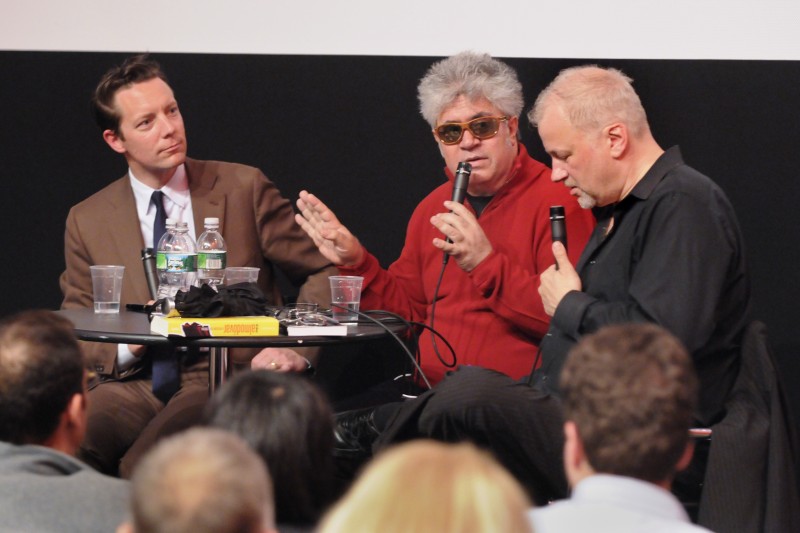


Early Almodóvar
Pedro Almodóvar (b. 1951) is one of the very few filmmakers living and working abroad today who is widely recognized and popular in the United States. Over the last ten years, Almodóvar has won American audiences and accolades through a series of stylish, heartfelt and frequently outrageous melodramas, beginning with Women on the Verge of a Nervous Breakdown (1988). Far lesser known, however, are Almodóvar’s earliest feature films, cheerfully shocking and hilarious comedies that first brought him to prominence in Spain by perfectly embodying the anything-goes spirit of the movida, the explosion of anarchic cultural (and sexual) energy that erupted after Franco’s death in 1975.
Long fascinated by the cinema, Almodóvar prepared to become a director not by attending film school (Spain’s national film school had been closed by the government in the 1960s) but by moving in 1967 to Madrid, where he dove into the city’s vibrant experimental theater scene and wrote prolifically for various underground magazines – satiric short stories as well as bold and often scabrous comic strips. In the early 1970s Almodóvar began to direct highly risqué Super -8mm films, silent shorts with explicit sexual content which were widely seen in the Madrid night clubs and bars where Almodóvar also performed in a popular glam rock parody band that formed around the same time. The short films eventually led to a Super-8 feature, Folle… folle.. Follame, Tim (1978), which gave Almodóvar the confidence and notoriety to advance to 16mm for his next feature, Pepi, Luci, Bom and Other Girls on the Heap (1980), whose tremendous critical and popular success launched his professional career as a filmmaker.
This mini-retrospective returns to the early, rarely revisited stage of Almodóvar’s storied career, tracing his progress from the deliberately rough hewn look and manic energy of Pepi, Luci, Bom… and the breakneck comic gem Labyrinth of Passion (1982), to the sophisticated, innuendo rich satire of Dark Habits (1983) and What Have I Done to Deserve This? (1984), the film that brought him international prominence.
Since Harvard had not yet announced the filmmaker's honorary degree at the time the program was posted, audiences enjoyed a surprise visit and conversation with the director on June 5.















